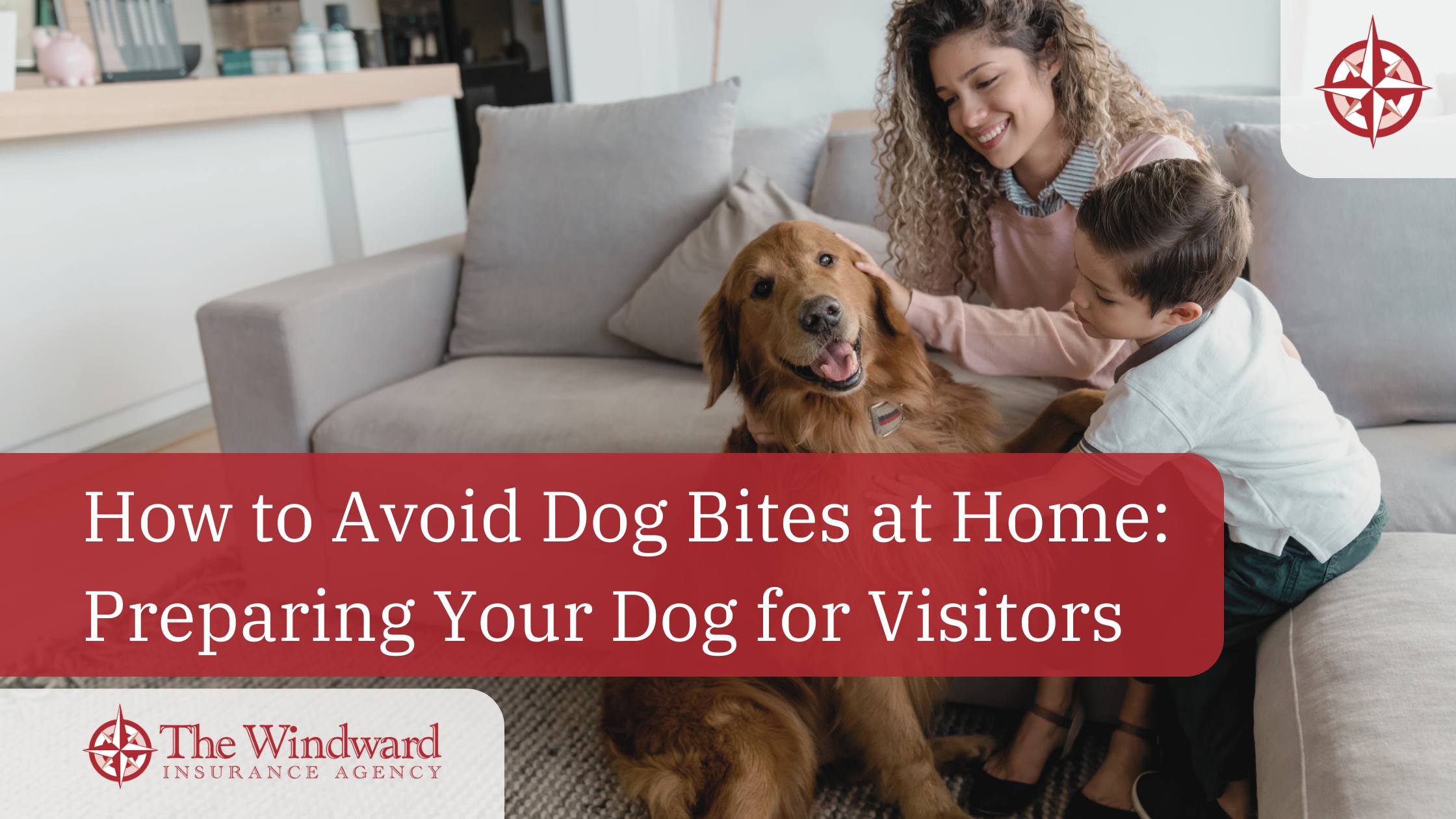You've invited a few friends over for a casual get-together at your home. Among the guests is Joy, who has never met your dog Max, a large, enthusiastic Labrador retriever. Max bolts toward Joy as soon as he sees her, barking and jumping up, knocking her back. She screams and attempts to push Max away, which confuses him. The situation leaves Joy shaken and Max retreating under the table.
Now imagine it going a different way: Before the gathering, you advise your guests about Max's lively nature and suggest how to interact with him. Before your friends come over, you take Max on a long walk to burn off excess energy and give him a favorite chew toy to keep him occupied as guests arrive. Introductions are calm and Joy comfortably engages with Max, tossing him his favorite ball to fetch – creating a relaxed and enjoyable atmosphere for everyone.
Here's how to ensure your guest-dog interactions are more like the second scenario than the first.
Prepare Your Guests
Every dog is unique, so it’s important to make visitors to your home aware of what they can expect from your dog – along with what your dog’s body language means. It’s also your responsibility to observe how your dog is handling the interaction as it’s occurring, and never force an introduction if your dog is not feeling it. And don’t forget: adult supervision is necessary anytime children are around your dog.
Properly explaining how to prevent dog bites when guests visit can make all the difference.
What’s Typical for Your Dog
Is your dog excitable and high-energy? Nervous and shy? An excessive drooler? Whatever you already know about your dog – be sure to give your guests a heads-up about what they can expect. This includes any known triggers or dislikes. For example, standing alongside a dog (instead of facing them) can be less threatening for some dogs. To avoid territorial conflicts, let your guests know if there are spaces or items within the home considered your dog’s domain – such as a favorite chair or to and make sure to tell your guests where your dog prefers to be petted.
’Ignore My Dog’
See if you can enlist your visitors to avoid looking at, speaking to, or petting your dog – at least for, say, the first 30 minutes after they arrive at your home. This allows your dog time to adjust to the new sounds, smells, and people before you make introductions. Please note this can be difficult for animal-loving folks to do, so you’ll also want to properly prepare your dog for visitors in advance of these interactions.
Helpful Guest Behaviors
Other behaviors your guests may adopt to help calm an excited dog include:
- Wait for the dog to settle before interacting.
- Avoid using excitable tones when talking to the dog, especially at the introduction stage. Speaking slowly, in calm tones, can help reduce a dog’s overeagerness during introductions.
- Give the dog some of its favorite treats, preferably after following a sit or stay command.
- Let the dog come to you. When guests wait for the dog to approach them, they don’t unwittingly corner a nervous, anxious, or fearful dog who may nip or snap when threatened.
- Move slowly and predictably. Quick movements can excite dogs and they may take it as an invitation to play.
How to Prevent Dog Bites When Guests Visit
The following are practical tips to help you prepare your dog for guests – and how to prevent dog bites when guests visit.
When you prepare your dog for visitors, you're helping to create a more harmonious environment and ensuring your dog and your visitors both have a positive experience. The following strategies may help. And, after your guests leave, be sure to give your dog plenty of love and attention.
Exercise to Burn Off Energy
Just before your guests arrive, take your dog for a good, long walk or run. This can help calm your dog and reduce the likelihood they will become overly excitable during visitor introductions.
Regular exercise is essential for a dog’s well-being. It provides a physical release of energy as well as mental stimulation. It helps ward off boredom and associated destructive behaviors. When a dog is regularly walked/exercised, it can even help reduce anxiety and aggression.
Leash or Crate as Guests Arrive
You may wish to start by leashing or crating your dog for the first half-hour or so after guests arrive. Then, when you’re ready to make introductions – and your dog is calm – you can do so using a leash, for added control. The aim is to make sure both guests and canine are comfortable and relaxed when meeting for the first time.
Reward Calm Behavior
It’s important not to inadvertently reward your dog’s excitement when the doorbell rings or when guests enter the home. This is why looking at, talking to, or petting your dog – at least initially – may reward the precise behavior you’re trying to curb. Ignore unwanted behaviors, and reward those you want repeated.
This video offers some excellent tips to prepare your dog for visitors:
Go on a Walk Together!
Talk about a win-win! Encouraging a houseguest to join you for a walk with your dog shortly after arrival can cultivate guest-dog bonding, help reduce your dog’s energy level, relieve stress, and improve socialization through a shared activity such as a walk. Going on a walk together early in your guest’s visit can be especially beneficial if your dog tends to pee a little when excited.
Preparation Is Key to Preventing Dog Bites
In addition to following these (and other) suggestions designed to foster mutually enjoyable guest-dog introductions and prepare your dog for visitors, Florida homeowners may also be able to add animal liability insurance to their homeowners policy.
In Florida, dog owners are legally responsible if their pet injures someone – even if it’s the first incident – making animal liability coverage a smart safeguard.
What Is Animal Liability Insurance?
To further reinforce how to prevent dog bites when guests visit, consider adding animal liability coverage.
Animal liability is an add-on coverage that protects homeowners in the event their pet bites or harms others – with up to $25,000 in liability protection and medical payments up to $2,000.
The insurance professionals at The Windward Insurance Agency can help you determine whether animal liability insurance is right for you; restrictions apply.
For more information about animal liability insurance, call The Windward Insurance Agency at (866) 231-2433.
Are you looking for homeowners insurance? Protect your home and learn how to prevent dog bites when guests visit – get a homeowners insurance quote online today.





